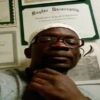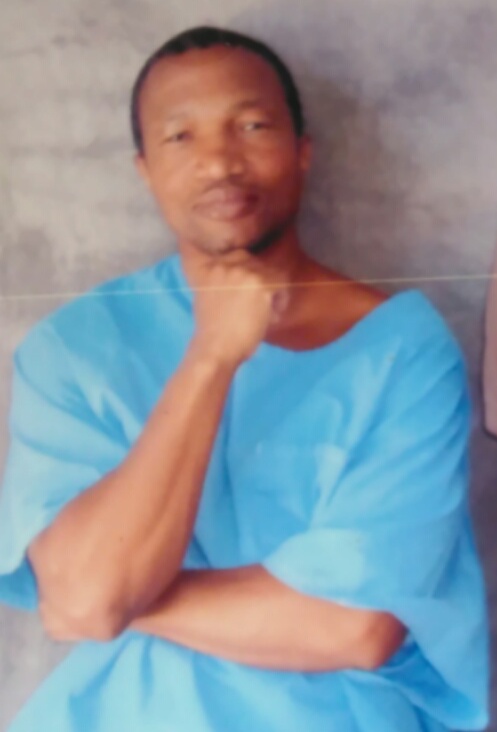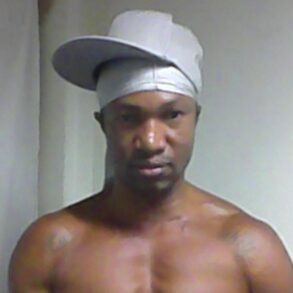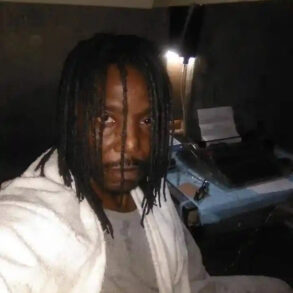by Donald “C-Note” Hooker
As a political junkie, Friday’s edition of the PBS NewsHour, is always must watch TV for me. On Friday, April 24th, 2020, reporter William Brangham was doing a human interest story on COVID-19. Somehow, he ran across a Facebook post from a New York City, Mount Sinai, ICU nurse, KP Mendoza. The 24-year-old, frontline Coronavirus worker’s, Facebook post, drew national attention. His post said something that struck a nerve with Brangham, that resonated with me also. It is also the reason why I’m sharing my Mprisond Thotz, on Coronavirus.
When I was in college, I used to tell myself I was too busy to call my parents. At best, I’d call them once a week, maybe once a month if I was in the midst of midterms or finals. They’re immigrants from the Philippines who still work as nurses back home in Chicago. I even used to attribute my inability of connecting with them due to my hectic schedule and their unconventional shift times. But, it’s strange how anxiety claws at you. I read their stories in the medical histories over morning report; I see their faces in my dying patients – hear their children’s distraught voices pleading for updates, praying for good news. Was it their voice I heard, or was that mine over the phone?
.
.
I wonder if my parents have finally figured out why I frantically call them almost every night now.
I had the misfortune of learning of my mother’s passing in 1998, while a prisoner at High Desert State Prison. The last time I had spoken to her was a telephone conversation. I had called her from the Los Angeles County Sheriff’s, Men’s County Jail. I was special housed in their Crip module. My phone call was regarding an expected visit that didn’t happen. This was a follow up as to why. This was going to be her first visit. I was able to get through to her on the phone, and she did visit just like she said she would. She told me how she was waiting out there for hours upon hours, waiting for me to come out there, until she got kicked out, as visiting had closed.
Her visiting experience didn’t come as a great surprise. The sheriff played those type of games to visitors coming to visit Crips. After she told me that, she then told me, “As long as you’re in jail, I can’t do nothing for you.” Just as soon as those words left her lips, I hung up the phone in her face. That was in 1987, a whole decade prior to her passing. I had a girlfriend who was very adamant, near the point of break up, for me to call her, and reconcile with her, but I wouldn’t.
I recall a Bible Story of Lazarus and the Rich Man. Both had died, one went home to the Maker, the other to the Baker. The Rich Man, who was suffering, and in torment, begged God to send Lazarus back to the living so that he could warn the Rich Man’s family, the perils of his path. [Luke 16:19-31]
At the time of my mother’s passing, our relationship status was estranged. No one knows, or could feel my deep sense of regret. This is why Mendoza’s college days’ reflections of regret, at being too busy to make a phone call, resonated with me. Ironically, I feel like my purpose on Earth is to warn others not to repeat the mistake I made. I am Lazarus, and we don’t get opportunities to say I’m sorry, or that I love you, when our family, without warning, dies. My mission hasn’t been easy. I get push back all the time. This world is full of bullheaded people, and like my mother use to say, “A hard head makes a soft behind.” It is so valuable that we take the time out to renew our family relationships. I am unfortunately confident, that this novel coronavirus will have killed over 100,000 Americans this year. This domestic plague, in the space of one year, we’ll have killed more Americans than all the American lives lost in international Wars post World War II in 1945.
I just wanted to say, family is family, please resolve yourself to accept that. Growing up in gang culture L.A., all my homies, weren’t my homies, but if someone were to attack, someone I had despised from the gang, I had to help the homie. People think they don’t need their family, but they do. Michelle Alexander in her book The New Jim Crow: Mass Incarceration in the Age of Colorblindness, was able to articulate the disaster incarceration has had on the Black community, and the Black family in particular. Those of us who are incarcerated are like Jesus, who was hauled off to be crucified; while the families we’ve left behind, that are free, are like his disciple John, who when questioned, after Jesus’s arrest, stated, “I never knew him.” With family being a primary source for compatible genetic material for life-saving procedures, is that the time, you would want to have that uncomfortable conversation? When you need them to donate genetic material to save your life, or the life of your child?
I hope this prisoner’s humble experience with death, during this Corona pandemic, resonates with someone, to forgive their loved one.
[C-Note has written for Prison Action News, California Prison Focus, Turning The Tide, and Our Voice. He’s been written about in People, Darealprisonart, Inside CDCR, and KCET-Los Angeles’s Departures. In 2017, Google Search listed him as both Americas and the world’s most prolific prisoner-artist.]
This post was originally published on this site be sure to check out more of their content.









